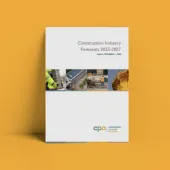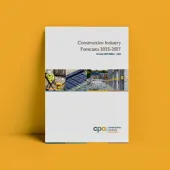Best-practice approach for investment and growth

Association publishes report on ways to encourage investment in UK construction product manufacturing
INDUSTRY and government can work better together to develop policies that give greater certainty and confidence to industry and encourage investment, innovation and growth, according to a report from the Construction Products Association.
In the second in a series of projects that the Association is contributing to support the Industrial Strategy for Construction, the report – ‘A Study of the Factors Underpinning Investment in the Construction Products Industry’ – seeks to: understand the economic, political and regulatory risks which may be influencing investment; showcases examples of policies with positive and negative impacts; and advises on a best-practice approach to regulation and policy.
The report also features results of two surveys of Association and industry executives regarding both the impact of energy costs, supply and security on investment, and their views towards specific policies such as Part L, the National Infrastructure Plan, Help to Buy, the Energy Company Obligation, Green Deal and the EU Emissions Trading System.
The key findings of the report include:
- Effective regulations are clearly defined, target-driven and not prescriptive.
- Industry needs policy and regulation that is simple with minimal administrative burden.
- Policy works best when government consults industry early and regularly to identify problems, review measures, provide solutions and evaluate results.
- Government can create greater certainty for industry by providing a road map with a long-term plan – not just over five-year parliamentary cycles – and clear goals which allow time for industry to prepare.
- Once the road map is implemented, unplanned changes should be avoided. Delivery according to the original plan is key. Consistency of policy helps industry to invest.
- Cross-party consensus should be sought in advance for policies which are key drivers in major markets (eg infrastructure and housing), to prevent changes occurring due to party politics.
John Sinfield (pictured), chair of the Construction Products Association, said: ‘In the construction products industry, many companies trade on a multinational scale and, as a result, have a choice of where they base their manufacturing. One of the major challenges faced today by both the UK government and UK business leaders is ensuring that this country is viewed as a favourable location to invest.
‘There is such a thing as ‘good regulation’ and policy,’ he continued. ‘It supports the market, sets high standards and provides industry with a clear view of the way forward. It motivates business to develop innovative products and solutions and invest in future opportunities.
‘Ultimately, however, the regulatory framework must be seen by business as stable, concise and predictable over the long term. And always, industry must be consulted fully.’
The Association also offers several recommendations to industry which, it says, needs to demonstrate leadership and play its part in helping develop effective policy and regulation. This could be done by working together to establish a consensus and:
- Speaking with one united voice as a supply chain to government.
- Providing government with high-level, outcome-focused strategic input which avoids commercial differences.
- Supporting well-considered, effective regulations with credible, practical solutions which are fact- and evidence-based.









